
by Jennifer Burden | Oct 24, 2013 | 2013, Health, Social Good
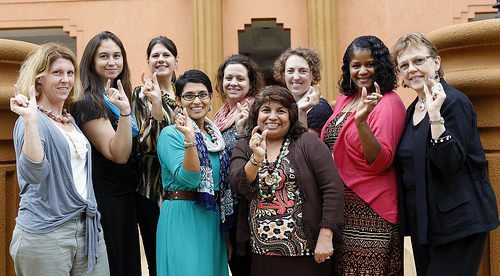
A UN Foundation Shot@Life delegation to Uganda, including World Moms, Jennifer Burden and LaShaun Martin, shows we are “this close” to eradicating polio worldwide. — October 2012
According to the U.S. Center for Disease Control,
“The eradication of polio from the western hemisphere is among the most significant public health achievements of all time, but victory over polio cannot be claimed until the entire world is made safe from the disease, and that is the commitment the global public health community has made.”
What is polio?
“Polio is a crippling and potentially deadly infectious disease caused by a virus that spreads from person to person invading the brain and spinal cord and causing paralysis.” — US CDC
Is there a cure for polio?
“Because polio has no cure, vaccination is the best way to protect yourself and the only way to stop the disease from spreading. The spread of polio has never stopped in Afghanistan, Nigeria and Pakistan. Poliovirus has been reintroduced and continues to spread in Chad and Horn of Africa after the spread of the virus was previously stopped.
In the late 1940s to the early 1950s, in the United States alone, polio crippled around 35,000 people each year making it one of the most feared diseases of the twentieth century. By 1979 the country became polio free.” — US CDC
Shot@Life & The GAVI Alliance
The protection of the global population, especially children, from such horrid diseases motivates our volunteerism with the UN Foundation’s Shot@Life campaign and the GAVI Alliance. Shot@Life rallies Americans in support of life-saving vaccines for children in the developing world, and sends monetary support organizations on the ground administering the vaccines, such as the GAVI Alliance.
“These diseases are only a plane ride away.” — Dr. Meg Fisher of American Academy of Pediatrics
What Can You Do to Help?
Join World Moms Blog in our movement to help protect the children who need it most, and help eradicate diseases, such as polio.
1) Donate to Shot@Life. Did you know $20 fully vaccinates a child from the 4 leading causes of death of children under 5 years old — polio, measles, rotavirus and pneumonia? And only $1 pays for a polio vaccination.
2) Throw a GAVI Global Tea Party to raise awareness. Did you know you can use these tips from the World Moms about how to have interesting discussions with your friends and family on one of the leading global health solutions?
3) Join the #endpolionow Twitter Party tonight at 8pm-9pm EST tonight, Thursday, October 24th. Shot@Life Champions are taking to twitter tonight in support of polio eradication, and we’ll be there, too, making some noise!
4) Share this post and read our posts on our journey with Shot@Life to Uganda. There, we observed UNICEF’s Family Health Days, which administer life-saving vaccines to children under 5 years old.
Day 1: UNICEF Offices in Kampala Debrief
Day 2: Family Health Day in Mumbende, Uganda
Day 3: Signs of Poverty
Day 4: Family Health Day in Kabarole, Uganda
Do all 4, do 1 — whatever you can do. Help us help children and help eradicate polio worldwide!
This is an original post by World Mom, Jennifer Burden.
Photo credit to Stuart Ramson of the UN Foundation.
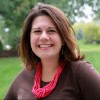
Jennifer Burden is the Founder and CEO of World Moms Network, an award winning website on global motherhood, culture, human rights and social good. World Moms Network writes from over 30 countries, has over 70 contributors and was listed by Forbes as one of the “Best 100 Websites for Women”, named a “must read” by The New York Times, and was recommended by The Times of India.
She was also invited to Uganda to view UNICEF’s family health programs with Shot@Life and was previously named a “Global Influencer Fellow” and “Social Media Fellow” by the UN Foundation. Jennifer was invited to the White House twice, including as a nominated "Changemaker" for the State of the World Women Summit. She also participated in the One Campaign’s first AYA Summit on the topic of women and girl empowerment and organized and spoke on an international panel at the World Bank in Washington, DC on the importance of a universal education for all girls. Her writing has been featured by Baby Center, Huffington Post, ONE.org, the UN Foundation’s Shot@Life, and The Gates Foundation’s “Impatient Optimists.” She is currently a candidate in Columbia University's School of International and Public Affairs in the Executive Masters of Public Affairs program, where she hopes to further her study of global policies affecting women and girls.
Jennifer can be found on Twitter @JenniferBurden.
More Posts - Website
Follow Me:


by Nancy Sumari | Oct 23, 2013 | 2013, Husband, Relationships, Social Good, Social Media, Travel, United Nations, USA, World Events, World Motherhood
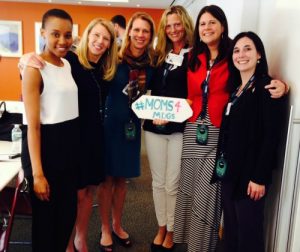 Nothing about my New York trip was what I thought it would have been. ‘Accompanying my significant other’ was the answer I gave to the lady at the visa section.
Nothing about my New York trip was what I thought it would have been. ‘Accompanying my significant other’ was the answer I gave to the lady at the visa section.
Neither she nor I had any idea what NY – “the city where dreams are made of” – had in store. Okay, maybe I am being a bit dramatic, but the vacation I thought I was to going have, was about to have a new prefix: work. It was to become a “work-cation.”
Before leaving for the Big Apple, I reached out to any available World Moms in the area on facebook, and almost instantly I had my first set of meetings with the WMB founder, Jennifer Burden. (more…)

by Kristyn Zalota | Oct 22, 2013 | 2013, World Voice
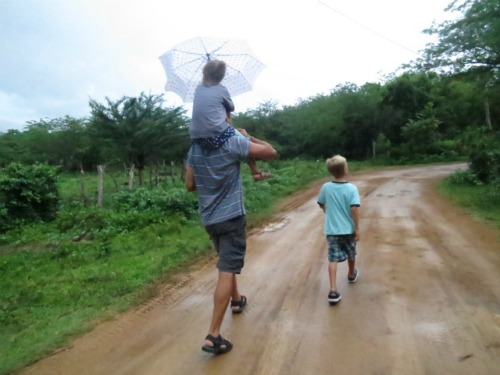
I have always joked that one day both my kids will whine in unison, “Enough with the developing world, can’t we just go to Disney?” I am pretty sure that will happen. But in the meantime, by traveling together I hope to show them that there are people in need and that we have the power to give a helping hand.
Volunteering has always been a part of my life. From a young age, I dished out food at local soup kitchens and baked and collected for drives and sales. I saw and smelled people living in my own community who didn’t have enough to eat or a place to take a shower. It wasn’t always pretty but, as a kid, I felt good knowing that I could help.
My first international volunteer experience was magical: nine months on the Thai-Lao border, as a newlywed, teaching community college students. What a life changer. It was the first of many trips that left me feeling that I got the better end of the bargain: a rich, meaningful experience, an opportunity to learn about a new place, people, and most of all, myself.
This is one of things that I want to share with my kids about volunteering: you give but you get even more. Sure you might find yourself in uncomfortable physical circumstances, but you get to experience a new place in a unique way and make human connections that will change you forever.
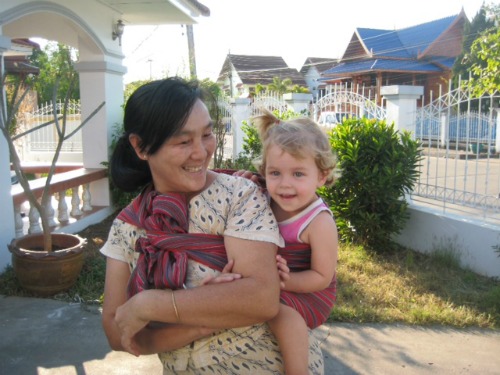
I am also ingraining in them the need to be respectful of those you are assisting.
In my work with CleanBirth.org, I face the need to balance my Northern Hemisphere take-over instinct with the knowledge that lasting change must be embraced by local people. We are indeed privileged with access to education and wealth, but we don’t have all the answers. We must keep our eyes and ears open, to really hear what people are saying and then work together to bring about positive change.
Have you volunteered with your kids? Did you feel like your family received just as much as you gave?
This is an original post by World Moms Blog contributor, Kristyn Zalota, in Guatemala.
Photo credits to the author.
Kristyn brings her years of experience as an entrepreneur and serial volunteer to CleanBirth.org. She holds a MA, has run small businesses in Russia and the US, and has volunteered in Nicaragua, Costa Rica, Thailand, Cambodia, Laos and Uganda on projects related to women’s empowerment.
After having children, Kristyn became an advocate for mothers in the US, as a doula and Lamaze educator, and abroad, as the Founder of CleanBirth.org. She is honored to provide nurses in Laos with the supplies, funding and training they need to lower maternal and infant mortality rates in their villages.
More Posts
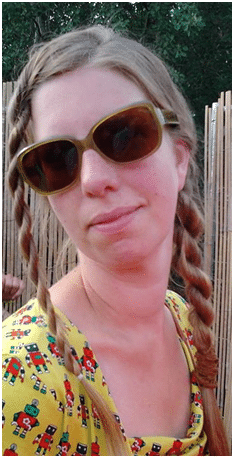
by Katinka | Oct 21, 2013 | Adoptive Parents, Being Thankful, Belgium, Birth Parents, Childhood, Cultural Differences, Domesticity, Family, International, Interviews, Kids, Penguin and Panther, Relationships, Siblings, Special Needs, Uncategorized, Working Mother, World Moms Blog Writer Interview, Writing, Younger Children
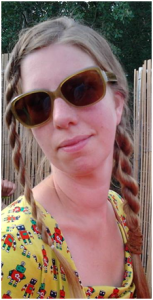 Where in the world do you live? And, are you from there?
Where in the world do you live? And, are you from there?
I was born, raised and proudly remain stuck in the Belgian mud. I would sometimes dream about moving abroad, but it turns out I’m quite happy staying right here. I do like to travel several times a year, mostly for work.
What language(s) do you speak?
My mother tongue is Flemish (which is basically the same as Dutch), but with Belgium being a trilingual country, I also speak French and I can understand German. Obviously, I also speak – and write – English. About ten years ago I also decided to learn Indonesian, but all I remember of it now are the words kamar kecil, which means I can actually ask where the bathroom is if I would make it to Indonesia one day.
In addition, I would love to learn how to read and write music, and to understand Amharic, the first language of our daughter.
When did you first become a mother?
This is a tricky one, because in my experience, I can call on two firsts. Two totally different ways of expecting a child, of becoming a mother, both wonderful and intense. In 2006, I first became a mother when our son was born, the one I love to call our cuddly Penguin. Five years later, in 2011, I first became an adoptive mother when we brought our two-year-old daughter home, our darling Panther.
Is your work, stay-at-home mom, other work at home or do you work outside the home?
Apart from being a full time mom, full time housekeeper and full time wannabe writer, I also have a full time job outside my home. Some might even say I’m building an exciting career as a geomicrobiologist, enabling me to go on missions abroad and to research amazing subjects, but they should know that my favorite moments are without doubt coming home, be it after a working day or a business trip.
Why do you blog/write?
I started blogging (in Flemish) during our adoption procedure, merely as a way to keep friends and relatives posted on any news we would get in those long years. Along the way, blogging became a kind of therapy, enabling me to vent frustrations and personal struggles, or to focus on optimism and fun facts. I also learned just how much I loved to write.
I kept on blogging until our daughter was home for two years. I recently decided to stop, mostly for the privacy of my children and because I felt like I was getting ‘addicted’ to blogging. It was a hard decision, disappointing to quite some readers who liked the plain honesty in my writing. But, as a go-between, I decided to start a low frequency, anonymous, English blog about life with my Penguin and Panther, and to contribute to WMB every once in a while. And in the extra spare time I have now, my newest endeavor is to write children’s books, which has long been a dream of mine.
How would you say that you are different from other mothers?
As a typically modest Belgian, I truly find it awkward to differentiate myself that way. I don’t believe I have something special about me as a mother, or a person for one. But since I have to, well, I guess I would be different from other mothers because my kids come in two opposite colors and with some extra needs. Our blond haired Penguin is an overly sensitive philosopher who understands more than is good for him, while our curly Ethiopian Panther deals with attachment, anxiety and health issues. They leave me both exhausted and enriched every single evening, but I guess that’s no difference to other mothers…
What do you view as the challenges of raising a child in today’s world?
I don’t even know where to begin! Every day is a challenge, when raising children, isn’t it? One of my major concerns though, is to let our children remain children as long as possible. I strive to keep a delicate balance between guarding my children innocence and purity, and still teaching them about the need for respect and care for the less fortunate or for our struggling environment. With today’s society going so fast, having everything within reach, leaving nothing to the imagination, I try to create an island of simplicity and ‘slowness’ for our children (and ourselves!) at home, where they can develop at their own pace. But when time comes, I still want them to be able to catch one of society’s speed boats that are racing by our island…
How did you find World Moms Blog?
I just bumped upon WMB through a cartoon someone shared. I think. My kids often beat me at ‘Memory’, so I can’t be sure about it. But I do remember I started reading and reading and couldn’t stop for another hour.
This is an original interview of our new writer in Belgium, K10K – pronounce it as Ka-ten-ka and you will come quite close to her real name – from The Penguin and The Panther
The image used in this post is credited to the author.
If you ask her about her daytime job, Katinka will tell you all about the challenge of studying the fate of radioactive substances in the deep subsurface. Her most demanding and rewarding job however is raising four kids together with five other parents, each with their own quirks, wishes and (dis)abilities. As parenting and especially co-parenting involves a lot of letting go, she finds herself singing the theme song to Frozen over and over again, even when the kids are not even there...
More Posts

by World Moms Blog | Oct 19, 2013 | Health, World Interviews, World Tour
It is that time of year again. The weather is turning colder, the leaves are beginning to change, Halloween costumes are being picked out, and there is pink everywhere you turn. Yesterday as I was taking my daughter to the park I drove by a large piece of plywood with a painted pink pig on it, 20 or more pink painted pumpkins, and breast cancer ribbons on the lawn of a local realty company. I am sure this serves some purpose, but it was lost on me.
October for me is always bittersweet. While I welcome the awareness, and messages of the importance of self exams and early detection, I am constantly reminded of the disease that took my mother’s life 15 years ago and of my own battle with breast cancer three years ago.

At 32 I was diagnosed with stage II B triple negative breast cancer. Life was good, my husband and I had been married for eight years, my daughter was four months old and my son was a few months shy of his third birthday.
It was a Friday night that I received the news that sent me crashing to the floor. A few days prior to my diagnosis my obgyn told me I was too young to have breast cancer.
Although I knew this to be untrue, I still found comfort in his words and convinced myself it was a clogged milk duct.
Two weeks later I underwent a bilateral mastectomy and four weeks following surgery I began my five month chemotherapy regiment. At the end of my chemo treatment I had genetic testing to see if I carried the BRCA mutation (a.k.a the breast and ovarian cancer gene). I was in fact positive for the gene mutation and for some reason I was surprised by this news, even with my strong family history. The reality then struck me that my children have a 50% chance of inheriting the BRCA mutation, putting them both at risk for breast cancer and other cancers including ovarian, prostate, and pancreatic.
Knowledge is power. Although my cancer journey has been difficult and it was very difficult to hear that my children and sisters could be at high risk, the knowledge that I am a carrier of the BRCA mutation has helped us to stay one step ahead of cancer.
A year following my diagnosis I had my ovaries removed to eliminate the risk of ovarian cancer. I firmly believe that if my mother had had that knowledge, treatment would have been more aggressive and she would have won her battle with breast cancer, before it became metastatic. I also believe that if I had the knowledge prior to my diagnosis, I would have been able to avoid my cancer diagnosis through a prophylactic mastectomy or at least been able to catch it earlier through increased screening.
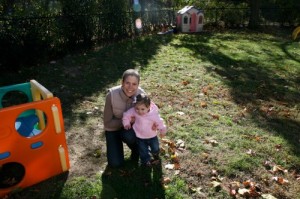
I had heard about the genetic test in my twenties, but I did not know that if I tested positive I could have up to an 85% risk of developing the disease and a 40% risk of developing ovarian cancer. I did not know that I could have had a prophylactic mastectomy that would lower my lifetime breast cancer risk to less than the U.S. national average, which is currently 12%.
However, I do not live in the past. I have embraced my cancer journey and all that has come with it.
Having this knowledge will benefit my sisters and my children most of all.
We make life choices that promote health and wellness and I feel that is a gift I can give my children. One day, they will be armed with the knowledge they will need to make informed decisions as they become old enough to have the genetic testing.
FORCE, Facing our Risk of Cancer Empowered, is a non-profit organization dedicated to supporting families affected by hereditary breast and ovarian cancer through education, support, and resources. There are local chapters throughout the United States and in other countries including Canada, Israel, and Australia. The World Health Organization reports that in 2010 there was more than 1.6 million cases of breast cancer worldwide, making it the top cancer for women in the developed and developing world. Although BRCA mutations are a just a small portion of these cases, there are certain groups that are at higher risk of carrying the mutation. These are people with Ashkenazi (Eastern European) Jewish ancestry and people of Norwegian, Dutch, and Icelandic ancestry.
I am now the Raleigh, NC area FORCE Outreach Co-Coordinator and we are a resource for women in the North Carolina area that have a strong family history of breast cancer or have tested positive for the BRCA mutation. We have support group meetings and work with the local genetic counselors. I am very excited to help bring support and education to families affected by hereditary breast cancer and to make sure women have the information they need to make informed decisions. We need to be our biggest health care advocates and doctors need to get the word out on genetic testing and how it can save lives.
Pink-Tober is in full swing and I hope that we can ignore the commercialism of it (and the giant pink pigs) and focus on its real purpose. Early detection saves lives! If you have a family history, please speak with a local genetic counselor.
If you notice a lump, or any changes in your breasts, get it checked out and don’t allow your concerns to be dismissed by your doctors.
Too many of our mothers, sisters, aunts, cousins, and daughters are losing their battle to this terrible disease. Until there is a cure, we need to focus on education, surveillance, and early detection.
To find out more about FORCE and hereditary breast and ovarian cancer please visit http://www.facingourrisk.org
To find out more about breast cancer in young women go to
http://www.youngsurvival.org
Risk factors for hereditary breast and ovarian cancer
http://www.facingourrisk.org/information_research/publications/documents/brochures-family-history.pdf
From the FORCE website:
How are hereditary cancers different?
- Hereditary cancer tends to occur at an earlier age than the sporadic form of the same cancer, so screening and risk-lowering recommendations for hereditary cancer may be different and may begin at an earlier age
- Hereditary gene changes and the accompanying increased risk for cancer can be shared by relatives and passed on to children.
- People with hereditary cancer have a higher risk for more than one type of cancer. In people who have already been diagnosed with a cancer, this may affect their cancer treatment or follow-up care.
- Specific screening or risk-lowering options are recommended for people at high risk for certain types of hereditary cancer.
Note: If you believe that breast or ovarian cancer runs in your family, you should contact a cancer genetic counselor, geneticist, or equally-qualified health care provider. These health care professionals can help determine your risk for hereditary cancer, inform you of available genetic tests and their benefits and limitations, order appropriate genetic tests, assist with insurance reimbursement of tests, and interpret the test results.

This is an original guest post to World Moms Blog. Katerina is a mom to Nathaniel, 6 and Lillian,4 and two labs Sasha and Dakota. She is a NJ native and recently relocated to Chapel Hill, North Carolina. Kat helped to start a young survivor breast cancer support group at UNC. She is happiest when she is enjoying the fresh air with her family, especially at the beach. Kat is passionate about nutrition and health. She feels so fortunate for every day that she get to spend with her husband and children. Every day is a gift.
Photo credit to Katerina Gmitter
World Moms Blog is an award winning website which writes from over 30 countries on the topics of motherhood, culture, human rights and social good. Over 70 international contributors share their stories from around the globe, bonded by the common thread of motherhood and wanting a better world for their children.
World Moms Blog was listed by Forbes Woman as one of the "Best 100 Websites for Women 2012 & 2013" and also called a "must read" by the NY Times Motherlode in 2013. Our Senior Editor in India, Purnima Ramakrishnan, was awarded the BlogHer International Activist Award in 2013.
More Posts


















